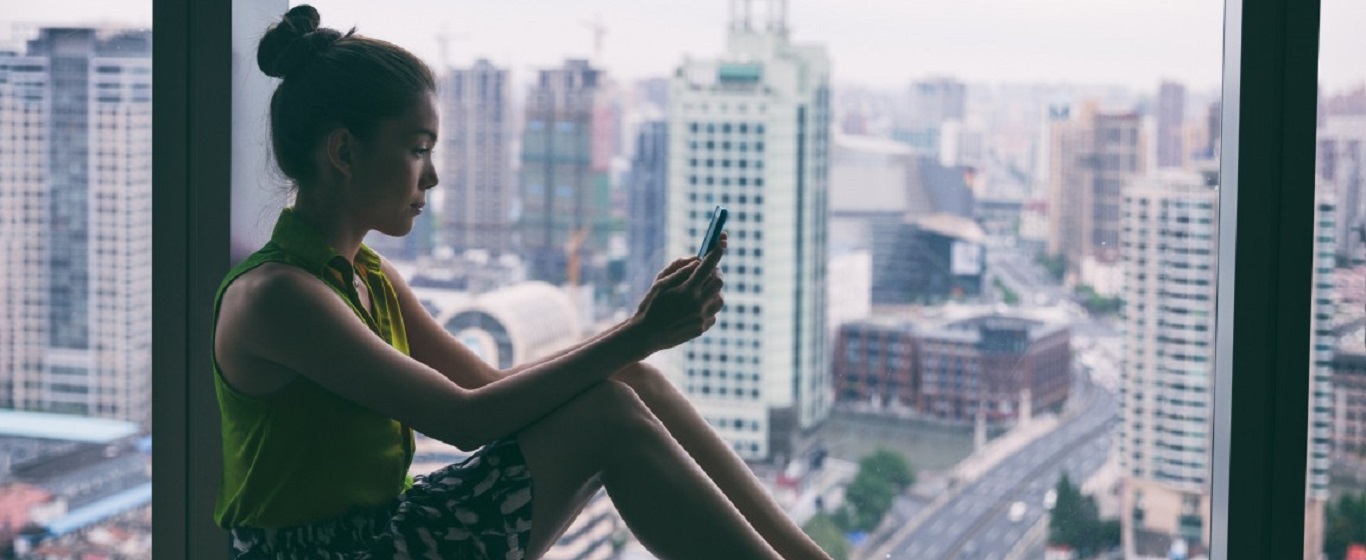
Social Media Use & Mental Health
Social media, whether it’s Facebook, Twitter, Instagram, or TikTok, consumes most of our lives. There are over 3.8 billion active social media users in the world today, with the OECD claiming that most users spend an average of 4 hours per day on social media platforms [1, 2].
Most studies over the past few years have linked social media use to poorer mental health.
A study done at the University of Pennsylvania found that when university students were split into two groups (one that could continue their normal social media usage on Facebook, Snapchat, and Instagram and another that would have to limit social media usage to 10 minutes per platform per day), the group that was restricted on their social media usage reported lower levels of loneliness and depression after a 3 week period [3].
Another study looking at social media use among 19-32-year-olds found that those who visited social media platforms, including Facebook, Twitter, YouTube, LinkedIn, more than 58 times a week were 3x more likely to feel socially isolated compared to those who used social media less than 9 times per week [4]. Here, frequency, or number of visits, seems to have more of an effect than the actual length of time spent on each platform.
Social media may have caused the greatest mental health effects on adolescents, specifically adolescent girls. In London, “very frequent” social media use was linked to higher mental health issues in girls compared to boys, including increased exposure to cyberbullying, and reduced sleep and physical activity [5]. Another also found that symptoms of depression were greater in 14-year-old girls compared to boys, with increased social media use being linked to online harassment, lack of sleep, low self-esteem, and body shaming [6].
Social media usage can also have a direct effect on our brains, as shown in the video below:
But does that mean all social media platforms are bad?
In fact, no. As the era of coronavirus has shown us, social media can actually have a positive effect on mood and well-being, giving users an avenue to stay in touch with friends and family around the world, which is especially valuable when being stuck indoors during lockdowns and movement restrictions. It can also serve as a way to express creativity and find others who share similar hobbies, interests, or even beliefs in the same causes [7].
Some platforms, such as TikTok, are even being used to discuss struggles with mental health, sexuality, and other insecurities, aiding individuals in knowing they are not alone and creating a sense of community [8]. Psychiatrists are also using the platform to spread mental health awareness to vulnerable populations in hopes of educating the public and destigmatizing mental health issues [9].
When it comes to mental health, it seems the problem has less to do with general social media use and is tied more to the frequency of use. The Harvard T.H. Chan School of Public Health found that routine social media use actually had a positive effect on users’ social wellbeing, mental health, and self-rated health. However, the opposite was true when social media use was excessively linked to emotions (i.e. checking apps excessively out of fear of missing out/ FOMO, feeling disconnected from friends when not on social media, etc.) [10].
Rather than quitting social media usage altogether, be mindful of how frequently you are online, and self-regulate to stay at your happiest!
References:
-
Chaffey D. Global social media research summary 2020. Smart Insights [Internet]. 2020 [cited 1 June 2020];. Available from: https://www.smartinsights.com/social-media-marketing/social-media-strategy/new-global-social-media-research/
-
Ortiz-Ospina E. The rise of social media. Our World in Data [Internet]. 2019 [cited 1 June 2020];. Available from: https://ourworldindata.org/rise-of-social-media
-
Walton A. New Studies Show Just How Bad Social Media Is For Mental Health. Forbes [Internet]. 2018 [cited 1 June 2020];. Available from: https://www.forbes.com/sites/alicegwalton/2018/11/16/new-research-shows-just-how-bad-social-media-can-be-for-mental-health/#70d456e37af4
-
Mir E, Novas C. Social Media and Adolescents’ and Young Adults’ Mental Health. National Center for Health Research [Internet]. [cited 1 June 2020];. Available from: http://www.center4research.org/social-media-affects-mental-health/.
-
Viner R, Gireesh A, Stiglic N, Hudson L, Goddings A, Ward J et al. Roles of cyberbullying, sleep, and physical activity in mediating the effects of social media use on mental health and wellbeing among young people in England: a secondary analysis of longitudinal data. The Lancet Child & Adolescent Health [Internet]. 2019 [cited 1 June 2020];3(10):685-696. Available from: https://www.thelancet.com/journals/lanchi/article/PIIS2352-4642(19)30186-5/fulltext
-
Kelly Y, Zilanawala A, Booker C, Sacker A. Social Media Use and Adolescent Mental Health: Findings From the UK Millennium Cohort Study. EClinicalMedicine [Internet]. 2018 [cited 1 June 2020];6:59-68. Available from: https://www.thelancet.com/journals/eclinm/article/PIIS2589-5370(18)30060-9/fulltext
-
Robinson L, Smith M. Social Media and Mental Health. HelpGuide [Internet]. 2020 [cited 1 June 2020];. Available from: https://www.helpguide.org/articles/mental-health/social-media-and-mental-health.htm
-
Ao B, Silverman E. Teens are using TikTok to talk about mental health, relationship abuse, and sexuality. The Star [Internet]. 2020 [cited 1 June 2020];. Available from: https://www.thestar.com.my/tech/tech-news/2020/01/06/teens-are-using-tiktok-to-talk-about-mental-health-relationship-abuse-and-sexuality
-
Montemayor C. How Therapists Are Using TikTok to Reach Teens & Talk Mental Health. SheKnows [Internet]. 2020 [cited 1 June 2020];. Available from: https://www.sheknows.com/health-and-wellness/articles/2240591/tiktok-mental-healthcare-therapy/
-
Roeder A. Social media use can be positive for mental health and well-being. Harvard TH Chan School of Public Health [Internet]. 2020 [cited 1 June 2020];. Available from: https://www.hsph.harvard.edu/news/features/social-media-positive-mental-health

